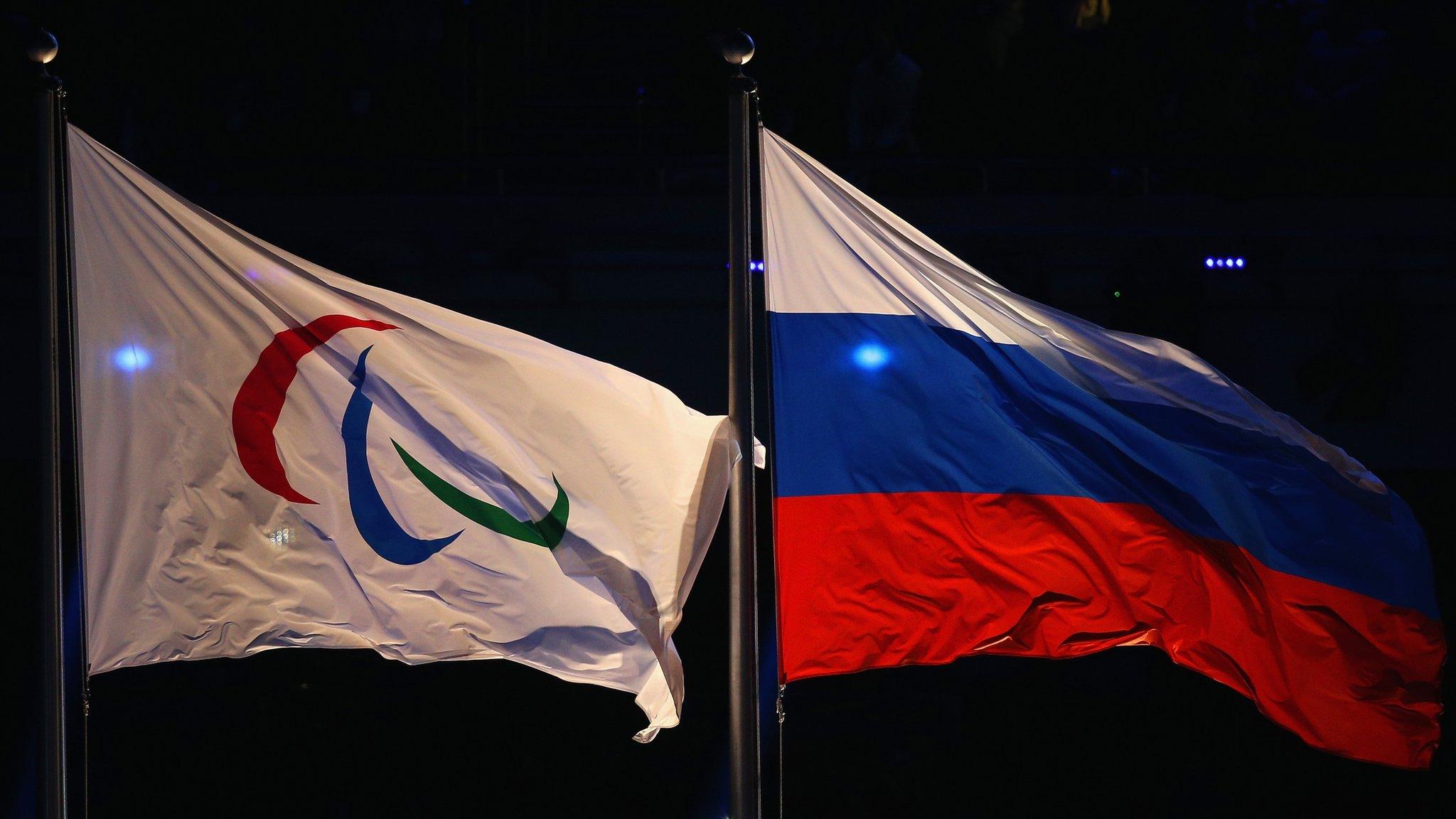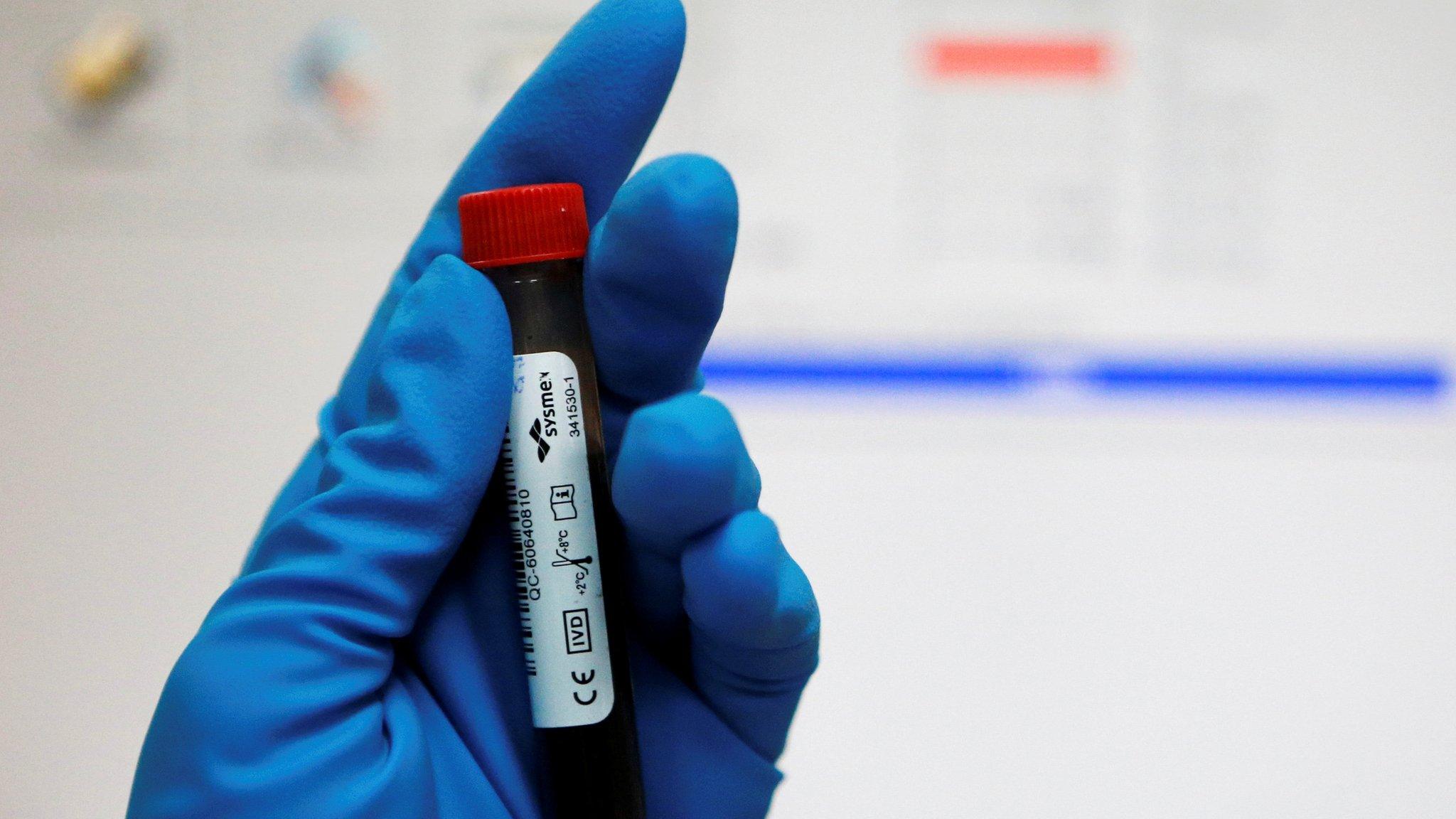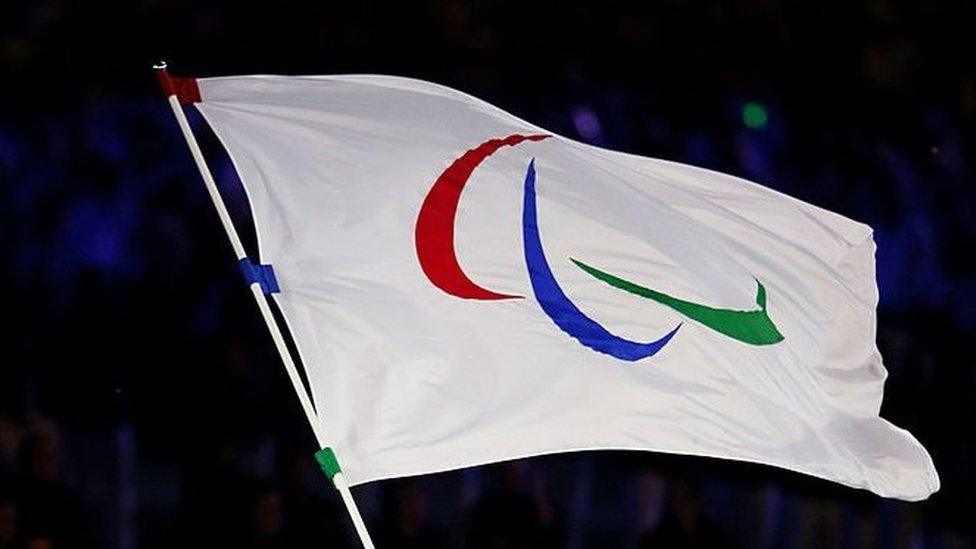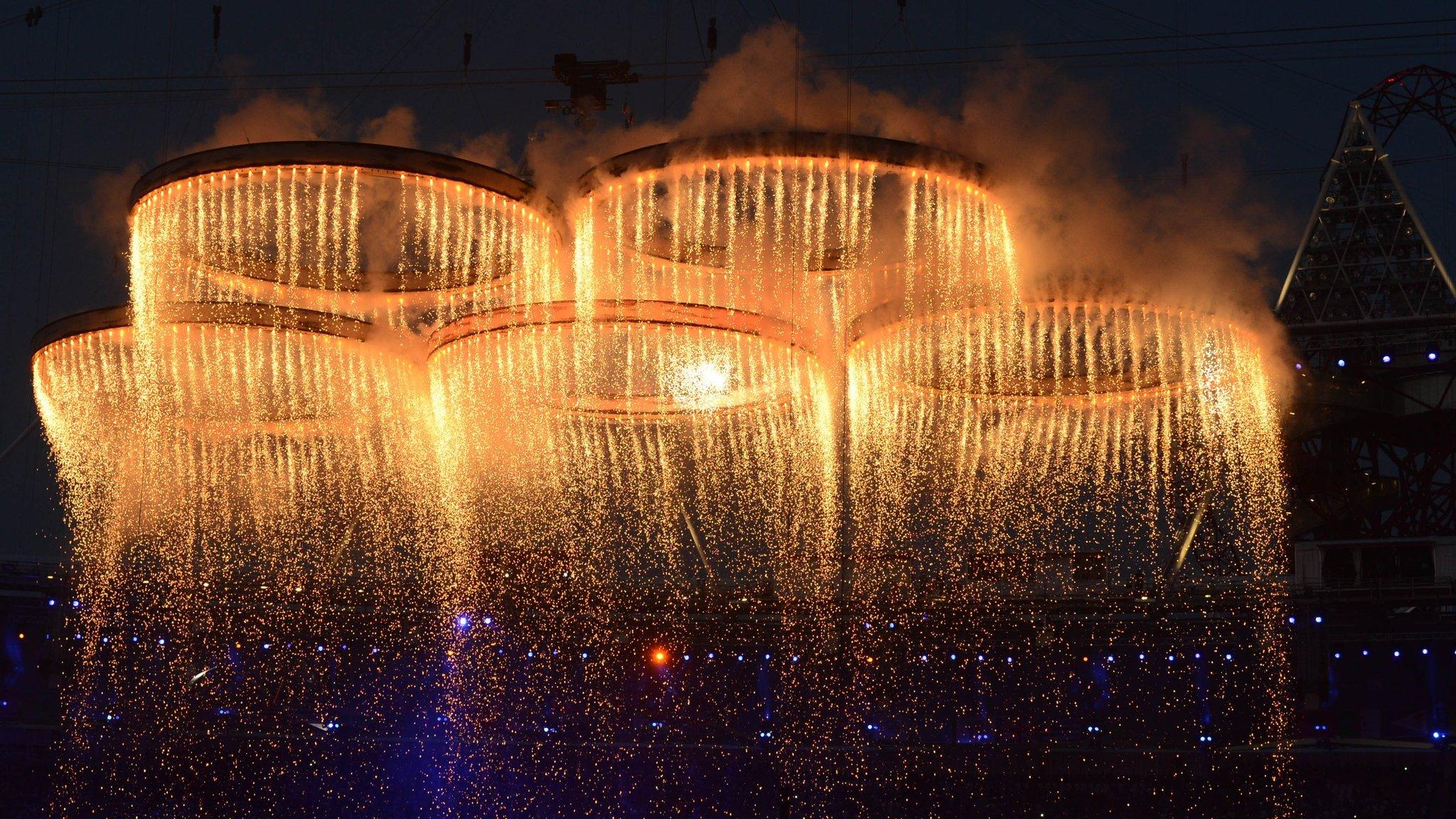Winter Paralympics 2018: Russia ban upheld for Pyeongchang but neutrals can compete
- Published
We are providing a 'level playing field' - IPC President
The ban on Russia competing at the 2018 Winter Paralympics has been upheld by the International Paralympic Committee.
But Russian Para-athletes who can prove they are clean will be allowed to compete in Pyeongchang as neutrals.
Russia was banned from all Paralympic competition in August 2016 after details of state-sponsored doping.
The decision comes after all but two of the key measures needed for reinstatement, set out by an independent taskforce, were met.
The IPC said there is now a "different picture" in Russia, compared to 2016 when the country's anti-doping system was found to be "totally compromised, corrupted and open to abuse".
"Although the RPC remains suspended they have made significant progress and we have to recognise this," said IPC president Andrew Parsons.
The IPC says it expects 30 to 35 neutrals who meet "strict criteria" to compete in five of the six events - alpine skiing, biathlon, cross-country skiing, snowboard and wheelchair curling.
A Russian Para-ice hockey team could not be considered as the country had missed the opportunity to qualify.
On Saturday, the International Olympic Committee issued a similar invitation to 169 Russian athletes who can compete as neutrals at February's Winter Olympics.
The Winter Paralympics begin in Pyeongchang, South Korea on Friday, 9 March.
In December 2016, the IPC created an independent taskforce which set the Russian Paralympic Committee (RPC) a number of conditions to meet.
The taskforce highlighted seven key measures that needed to be met before it could recommend the reinstatement of the RPC in September - and in December said five had still not been satisfied.
On Monday, the IPC said two of those criteria have still not been met.
The two measures are:
The full reinstatement of the Russian Anti-Doping Agency (Rusada) by the World Anti-Doping Agency (Wada).
The provision of an official response specifically and adequately addressing the findings of the McLaren report.
The key conditions which must be met for neutrals to compete are:
Para-athletes selected will compete as Neutral Paralympic Athletes (NPA), a modification of a name used since September for eligible Russian Para-athletes competing under a limited interim measure. As the RPC remains suspended, the word Russia cannot appear in the delegation name. They will compete under the Paralympic flag and the Paralympic anthem will be played in any ceremony.
The RPC will be responsible for selecting NPAs.
Only licenced Para-athletes who have qualified according to the qualification standards of their sport and who meet strict participation conditions can be considered for selection.
Each NPA must have had at least two anti-doping tests in the six months before Pyeongchang 2018.
Only Para-athletes part of either the IPC's international registered testing pool, Rusada's national registered testing pool or the International Federation's registered testing pool at the time of the Games may be considered for selection.
The RPC must provide evidence to demonstrate each NPA has participated in, and successfully completed, an RPC anti-doping education session.
Any Para-athlete or official implicated in any way - knowingly or unknowingly - by the numerous anti-doping investigations in Russia cannot be selected.
Para-athletes will compete in an NPA uniform. No Russian flags will be allowed in the vicinity of any venue associated with the Games.
NPAs will benefit from the same technical and logistical support as any other Paralympic athlete.
Members of Russian ministries (including the Russian Sport Ministry) and members of the RPC governing body will not be accredited for the Games.
- Published28 January 2018

- Published6 September 2017

- Published22 May 2017

- Published6 February 2017

- Published8 August 2016

- Published9 December 2016
